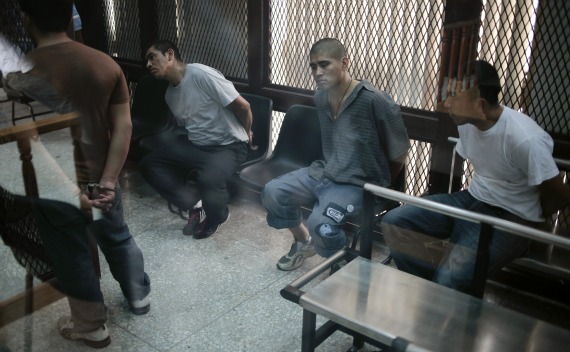Pulling Guatemala Back from the Brink
More on:

The conventional Guatemalan security story is one of a country riddled with violence, where law enforcement institutions are in shambles and corruption reaches the highest levels of government. Its homicide rate triples that of Mexico, and its notoriously weak rule of law system lets more than 99 percent of criminals walk free. The growing presence of Mexican and Colombian cartels, pushed out of their home countries due to intensive antidrug campaigns, has only made matters worse. As the Zetas in particular move into the northern provinces, observers sound alarm bells about Guatemala’s possible descent into a “narco-state”.
Still, it may be too early to give up on Guatemala. Since the capture of top drug-smuggler Juan Alberto Ortiz-López, alias ‘el Chamalé’, in late March of this year, Guatemalan officials have arrested a number of local gang leaders, some with close ties to the Zetas. Within days of folk singer Facundo Cabral’s murder this month, the authorities announced the arrest of three suspects, presenting a slideshow with a play-by-play rundown of the events. The swift response became a point of pride for Guatemalans accustomed to sluggish, if any, justice.
The UN International Commission against Impunity in Guatemala (CICIG) can take much of the credit for these improvements. Set up in 2007, the commission has been an enormous boost to law enforcement’s (still limited) capacity; assisting in high-profile investigations and promoting important reforms, notably witness protection and plea bargaining laws. It works in conjunction with domestic security agencies, employing a “learning by doing” model that teaches investigative methods to Guatemalan prosecutors on the job. Not least of all, CICIG played an instrumental role in the appointment of current Attorney General Claudia Paz y Paz, who has had a markedly positive impact on the public prosecutor’s office.
But Paz y Paz and her fellow reformers face an uphill battle. Guatemalans are among the most mistrustful of judicial institutions across Latin America, and the most skeptical of democracy overall. Winning the public’s trust in the justice system requires sustained improvements, not just sporadic high-profile successes. The lack of funding for security poses another major challenge - last year the government cut the public prosecutor’s budget by a quarter. More generally, Guatemala’s tax revenue is the lowest in the region at around 10 percent of GDP (its Central American neighbors are not much better, with this part of the region ranking below the rest of the continent and even Sub-Saharan Africa in tax collection).
The upcoming elections may also stall progress. The presidential frontrunner, Otto Pérez-Molina, is a retired army general with a questionable human rights record and a preference for iron fist, hard-line security policies. While he has promised to respect political appointees’ mandates, many fear that if elected he would replace Paz y Paz and even block the continuation of CICIG’s work beyond its current 2013 deadline. While outsourcing justice is not a long-term solution, banishing the UN commission before it has completed its investigations and trials will handicap efforts to strengthen the rule of law.
For a place that many have already labeled a failed state, the recent advances in security are a ray of hope. A committed Attorney General and external commission have shown that it is possible to make inroads combating organized crime and Guatemala’s pervasive culture of impunity. But to sustain and further these small islands of progress, other branches of government and citizens more generally will have to do their part. The very wealthy will have to pay higher taxes to underpin public security (a point stressed by Hillary Clinton during last month’s Central American security conference). The next president may have to forgo partisan calculations and bolster the justice system, starting with keeping the effective Paz y Paz as chief prosecutor. These are by no means easy steps to take. They require personal sacrifices and the setting aside of self interest for the public good of a stronger state. But if Guatemalans truly want a more stable and secure future, they will have to start making these tough choices. Instead of writing Guatemala off as a lost cause, we should applaud the work of a few courageous reformers and encourage the rest of the country to follow their lead.
More on:
 Online Store
Online Store